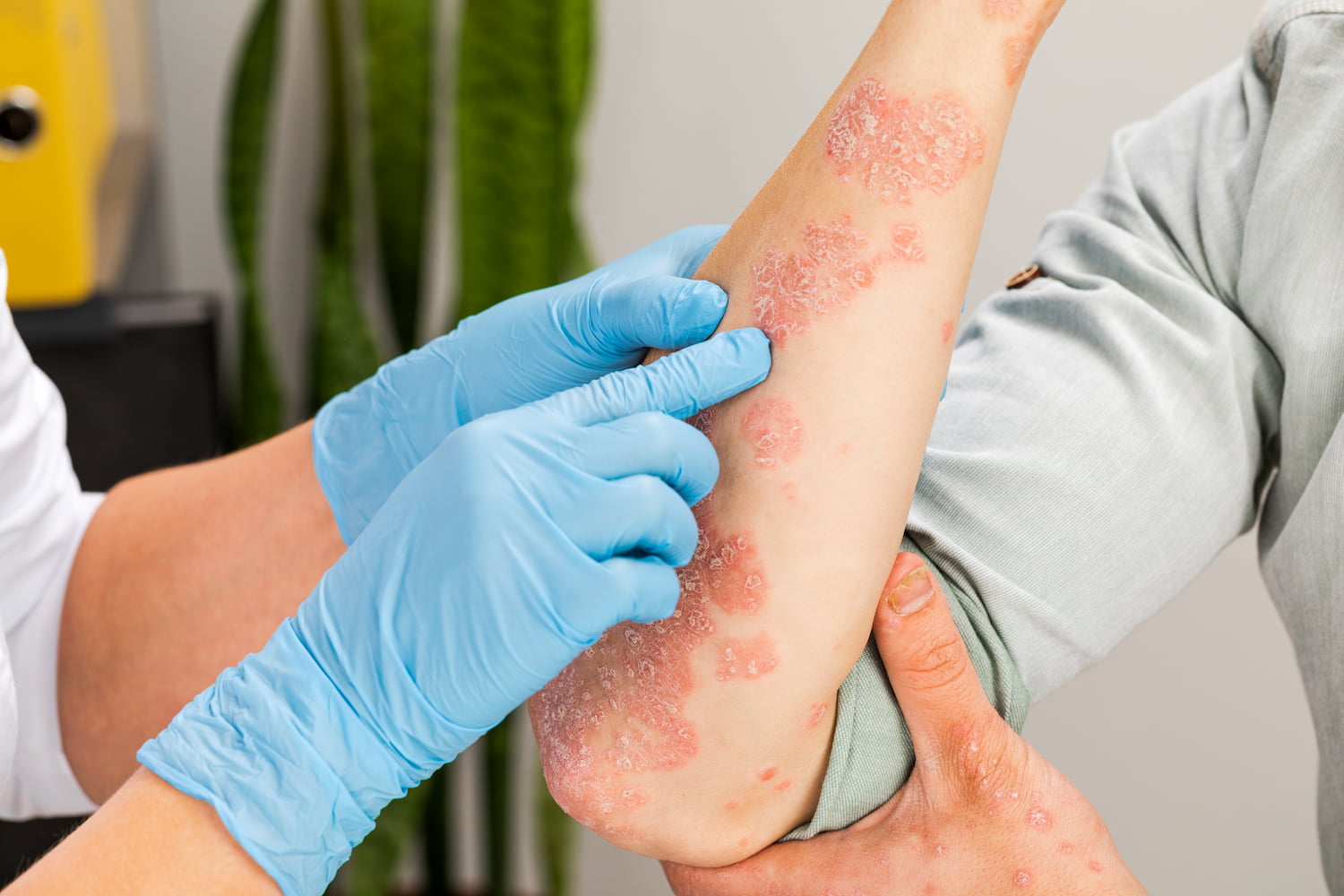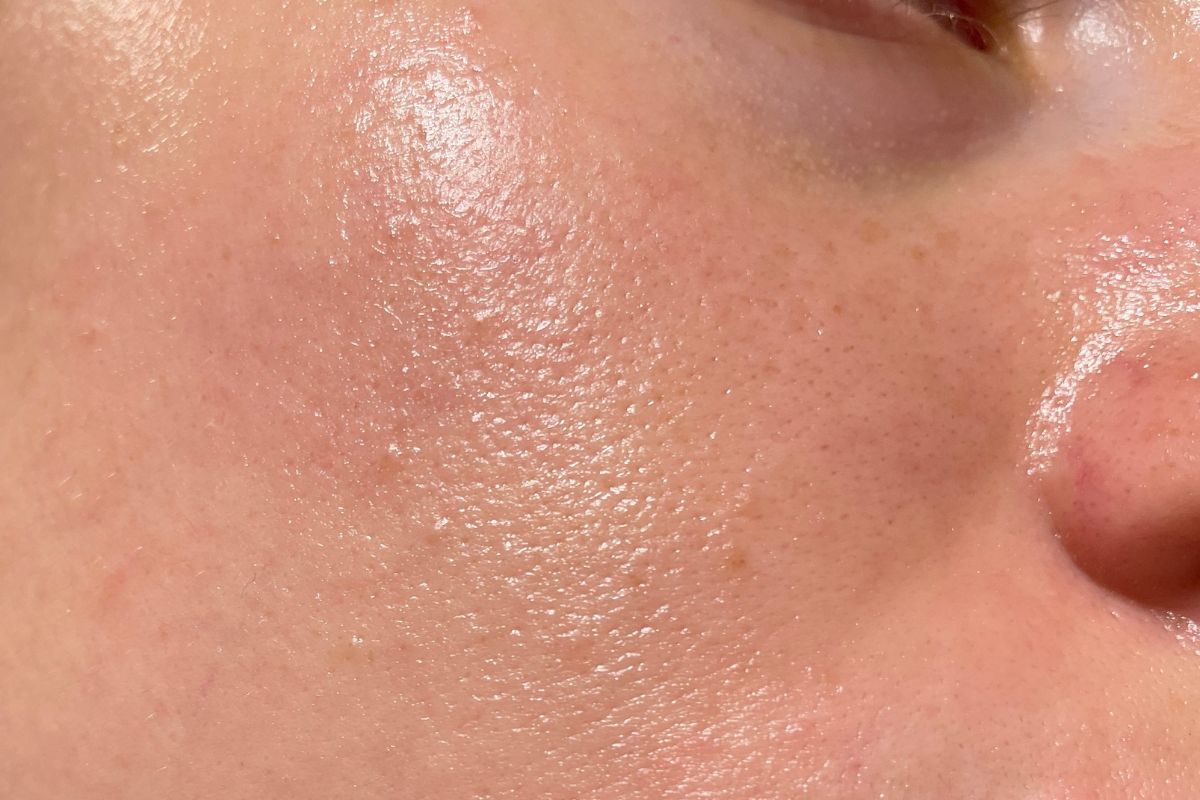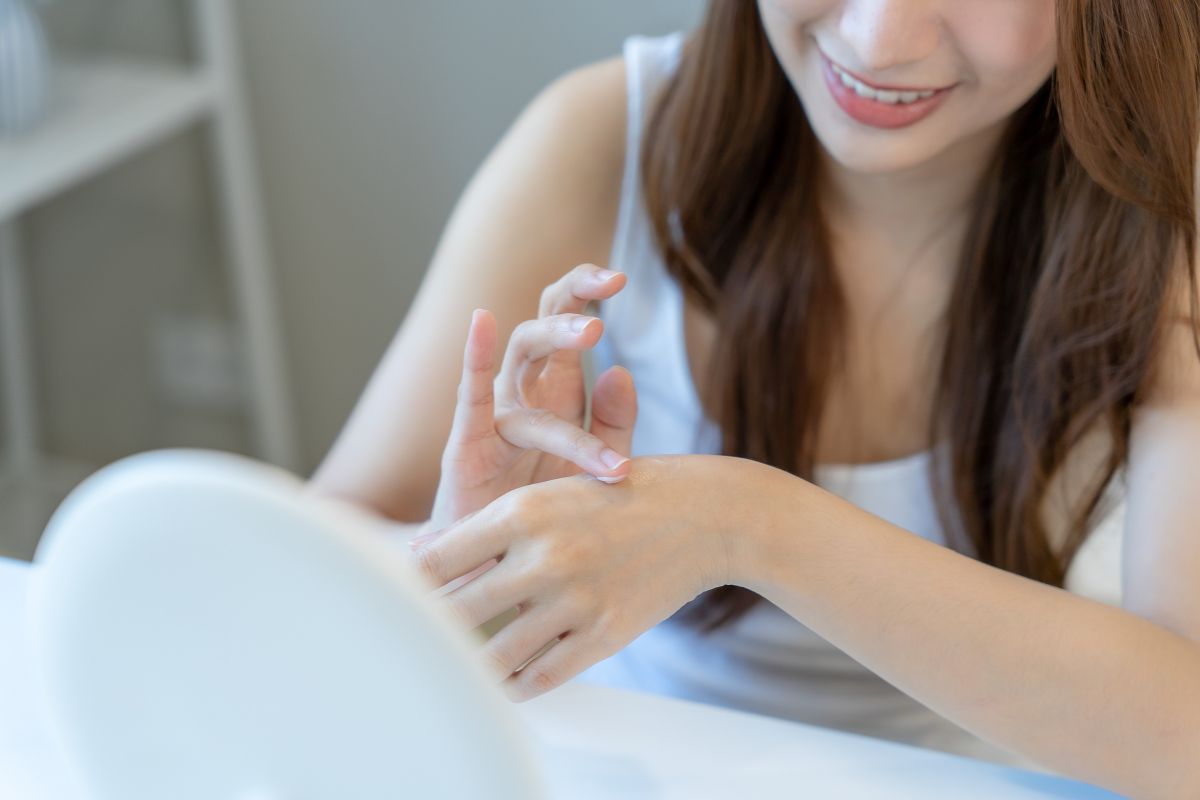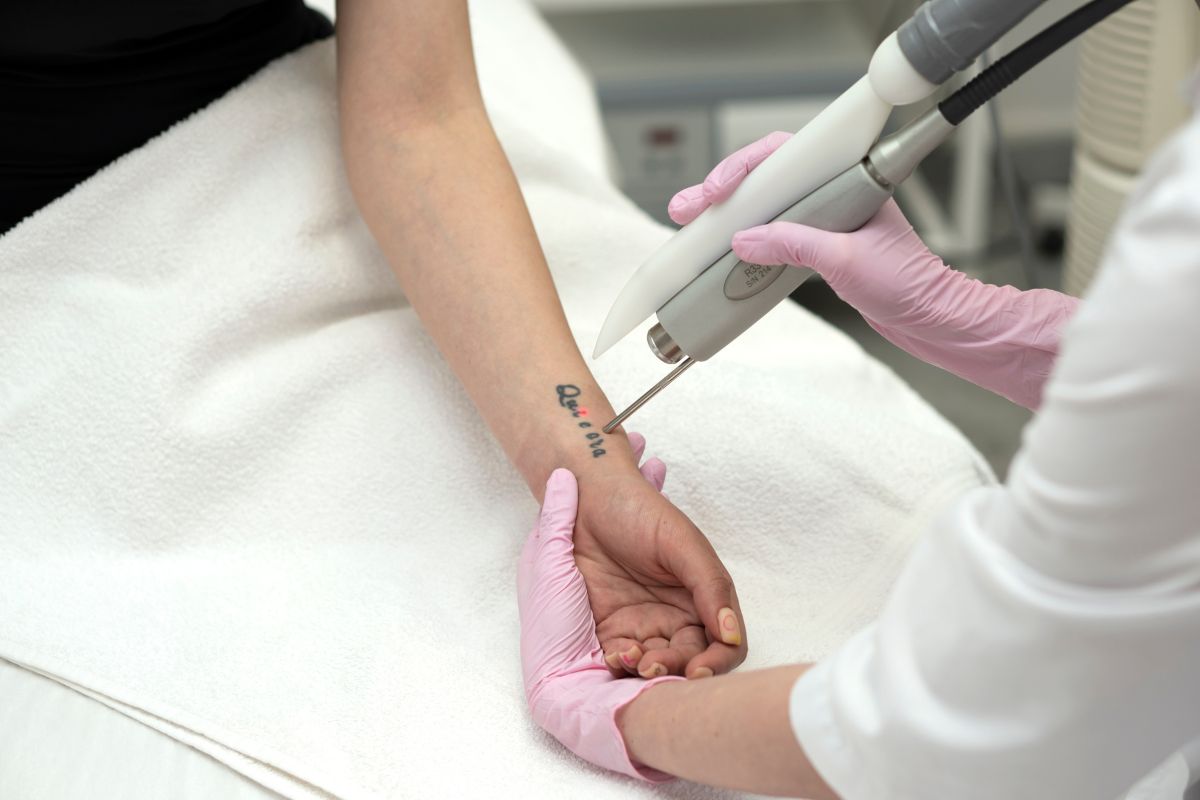Eczema can be an extremely irritating condition to deal with. In the course of dealing with it, many look for a variety of solutions to alleviate the discomfort. At Affiliated Dermatology®, we’ve had many patients who tried exfoliating to keep their eczema at bay. Others want to know if exfoliation can be a regular part of their skincare routine like it is for those without eczema. In this post, we’ll answer that question.
What is Eczema?
Eczema, also known as atopic dermatitis, is a skin condition that results in inflamed and itchy patches of skin. The exact cause of the condition isn’t known, but it’s believed to be caused by a combination of genetic and environmental factors. It’s characterized by extremely itchy skin that often becomes thickened and scaly while turning a reddish color.
Challenges with Exfoliating Eczema-Prone Skin
Given that exfoliating is all about removing dead skin cells, it may seem like a natural solution to the scaling caused by eczema. But this skincare routine used regularly by many becomes a different story with eczema-prone skin. Here are some factors to consider:
- Risk of Aggravation: Ultimately, it isn’t the scaly skin that causes the discomfort of eczema. Trying to remove it through exfoliation can further irritate the skin and make the situation worse.
- Potential for Breakouts: The scaling from eczema also differs from that caused by dry skin alone. With eczema, the skin barrier is already compromised. Exfoliating can weaken it further.
- Increased Dryness: Exfoliating strips the skin of natural oils. For most, this isn’t a problem as the oils will recover quickly. For those with eczema, it can set the stage for a flare-up.
- Sensitivity to Products: Eczema-prone skin can be sensitive to some ingredients in exfoliating products, causing adverse reactions.
- Potential for Scarring: Scrubbing inflamed eczema patches during exfoliation can lead to wounds, which might result in scars when they heal.
- Delayed Healing: Due to all of the factors above, exfoliating can slow the healing process of active eczema flare-ups.
Alternative Treatments for Eczema
For most people, exfoliation isn’t the miracle relief they were looking for. Thankfully, there are several ways to reduce the discomfort of eczema with little to no risk of making the problem worse.
- Moisturizing: Regular use of skin moisturizers can help reduce dryness, repair the skin barrier, and decrease the itchiness associated with eczema.
- Topical Corticosteroids: These are anti-inflammatory creams or ointments prescribed to reduce inflammation and alleviate itching during eczema flare-ups.
- Antihistamines: These medications help reduce the itching that comes with eczema. There are over-the-counter options as well as prescription-strength medications for tougher cases, which a professional at Affiliated Dermatology® can go over with you.
- Wet Wraps: Wrapping damp bandages over moisturized skin with a layer of dry bandages covering them can help lock in moisture and improve the effectiveness of moisturizers and other topical treatments.
- Avoiding Triggers: Certain foods, allergens, stress, and a host of other things can trigger an eczema outbreak or make an existing flare-up more uncomfortable. Having a medical professional identify these triggers can allow you to potentially avoid them and flare-ups down the line.
- Using a Humidifier: In particularly dry climates, during particularly dry periods, a humidifier can restore moisture to the air and help alleviate dry skin.
Some of these things work better than others. What works and what doesn’t depends a lot on the individual in question. Often, we have patients who thought they were managing their eczema well, only to see how much better things could be after they came to see us. If you have eczema, it pays to get a medical professional from Affiliated Dermatology® to look at it and discuss your options with you.
Get the Treatment You Deserve for Your Eczema
Affiliated Dermatology® has helped countless patients free themselves from the troubles of persistent eczema. Our treatments include over-the-counter and prescription medication options, as well as some simple lifestyle changes that can reduce your eczema symptoms. To learn more about how we can help or to book an appointment, contact us today.
Image Credit: Fuss Sergey / Shutterstock






